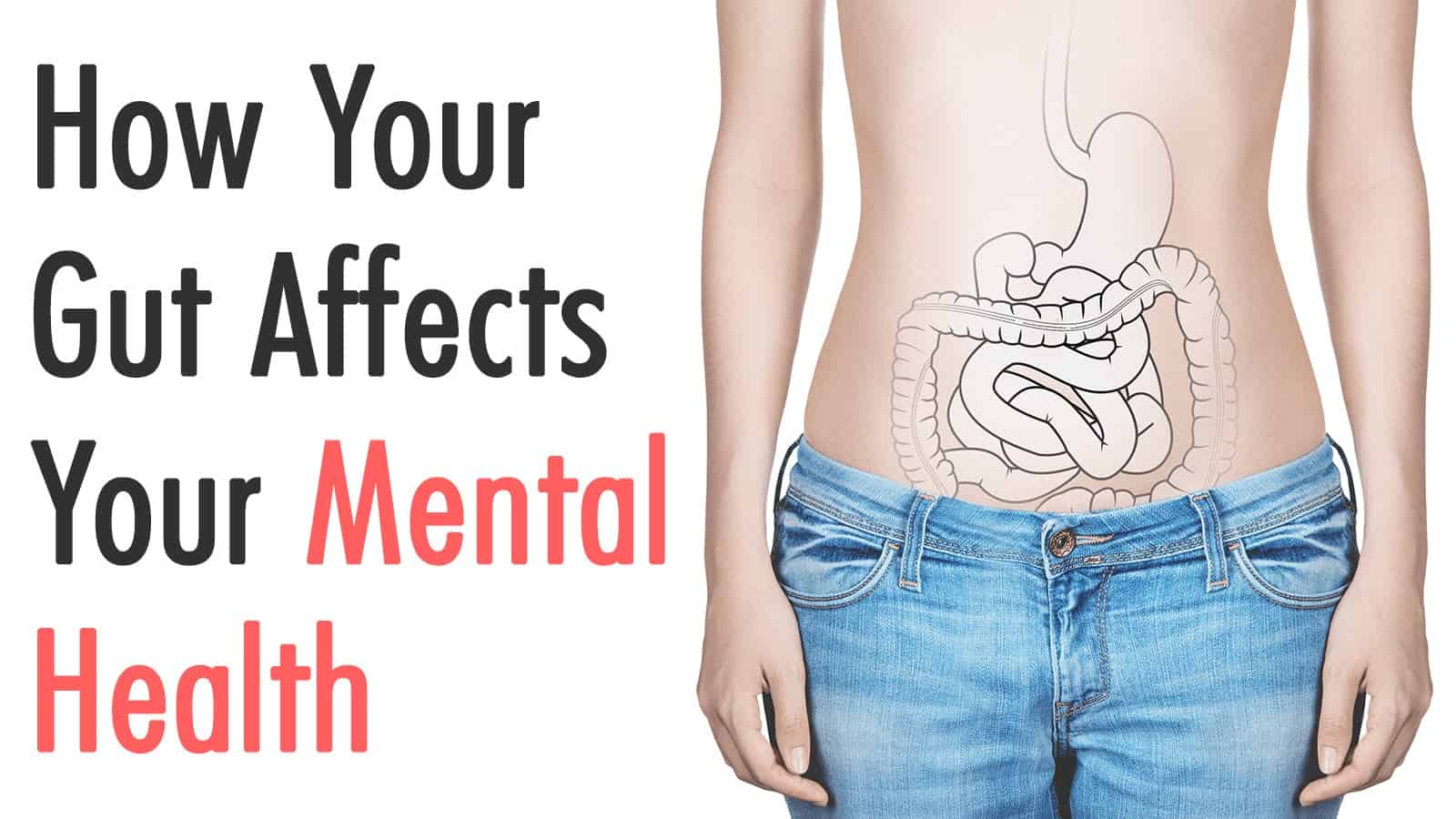As far as we’ve come in studying the human brain, we’re still in the early phases. New information about this fantastically complex organ seems to surface more every day. Need some proof? Read on to learn how a healthy gut increases your mental health.
Bacteria communicate with one another in a similar way to nerve cells in the brain, scientists have discovered. – The Daily Mail
Our gut (i.e., bowels) consist of two segments, the large intestine and the small intestine. Within these two segments are over 100 trillion bacteria, collectively called the microbiome or gut flora. Scientists are now discovering that gut flora may affect immune, digestive, and brain function!
The gut’s activity is so intricate that scientists dub the system “our second brain.” This second brain is in the infantile research stage, but an accumulating amount of data is demonstrating the intricate relationship between our “real brain” and our “second brain.”
Here, we discuss how gut bacteria communicate – with each other and our gray matter. Furthermore, we’ll discuss how our gut flora may affect our mental health. Lastly, we’ll provide some suggestions on how to optimize the levels of bacteria within the gut – making us healthier in the process!
The gut-brain axis and your mental health

Our gut can communicate to our brain through the vagus nerve – a “cranial nerve extending from the brainstem to the abdomen via the heart, esophagus and lung.” Approximately 90 percent of all nerve fibers that constitute the vagus nerve communicate information from the gut to the brain.
The molecules produced by gut bacteria have been found to enter the bloodstream. Scientists have discovered these molecules contain both hormones and neuroactive compounds, which helps explain why the bacteria may possess mood-altering qualities.
Microbes also interact with the immune system, which serves as a communication intermediary for some gut-brain interactions. These connections are vital for the health of the immune system.
Bacteria types
In simple terms, our gut flora consists of “good” and “bad” bacteria. Our good bacteria interact with the brain hormonally, helping to suppress the stress response by switching off the hormones adrenaline and cortisol. In contrast, bad bacteria – caused by Candida (yeast) or parasites – can counteract activities of good bacteria if an imbalance exists.
A serious imbalance of bad-to-good bacteria is a condition known as dysbiosis, which may be linked to various mental health disorders, including anxiety, autism, chronic stress, and depression. Scientists are evaluating the possible link between dysbiosis and neurodegenerative diseases, including Alzheimer’s and Parkinson’s Disease.
Anthony L. Komaroff, the former Editor in Chief of the Harvard Health Letter, summarizes this mind-gut connection:
“A person’s stomach or intestinal distress can be the cause or the product of anxiety, stress, or depression. That’s because the brain and the gastrointestinal (GI) system are intimately connected – so intimately that they should be viewed as one system.”
Healthy gut, better mental health
If this information seems a bit fantastical or overwhelming, don’t worry. Many individuals with the medical and scientific communities are still trying to make sense out of this almost irreducibly complex relationship. Given the discoveries mentioned before, it is important that we actively monitor and, if necessary, improve our gut (and hence, brain) health.
Here are five important takeaways from this information:
(1) The gut and brain and intricately connected through a complex communication network.
(2) The gut’s balance of good and bad bacteria more likely than not has a beneficial or adverse effect on our mood.
(3) We want the “good” kind of bacteria to outnumber the bad, as this balance supports the immune system and improves neurological function.
(4) We must be cautious of dysbiosis – an unhealthy condition wherein harmful bacteria may produce adverse brain conditions – including anxiety, depression, chronic stress, and even neurodegenerative disorders.
(5) We can maintain and restore a healthy gut flora balance through diet and supplementation.
More on diet and supplementation
Food plays a central role in maintaining a healthy balance of gut flora. In this closing section, we’ll explain how what we choose to eat is crucial to a healthy gut-brain connection.
The answer to any disturbance within the gut-brain connection may come down to just two things: prebiotics and probiotics. Let’s quickly discuss the importance of these two substances.
Probiotics are the live bacteria that are good for our health, especially our gut health. Besides being found naturally, probiotics are delivered in certain foods and supplements. Here are some good sources of probiotics: yogurt, kefir, sauerkraut, dark chocolate (yay!), miso soup, pickles, tempeh, kimchi, microalgae, and poi.
Prebiotics are nondigested substances that promote the growth of probiotics and are critical to maintaining a healthy balance of bacteria in the gut. Good sources of prebiotics include onions, raw garlic, raw asparagus, under-ripe bananas, jicama, leeks, dandelion greens, and Acacia gum.
Make prebiotics and probiotics a part of your diet. Cheers to your newfound gut health!



















